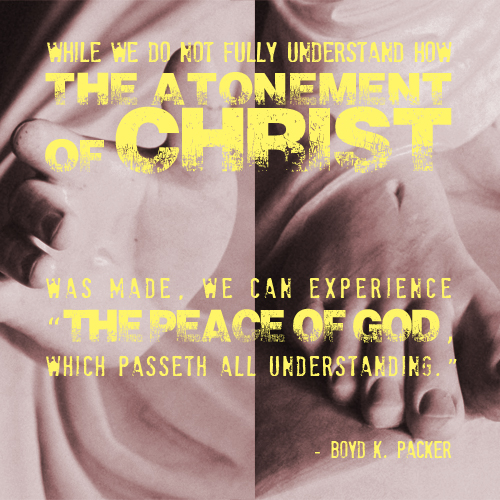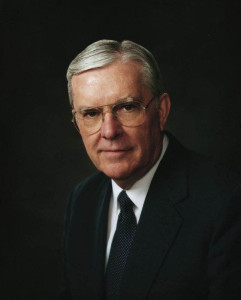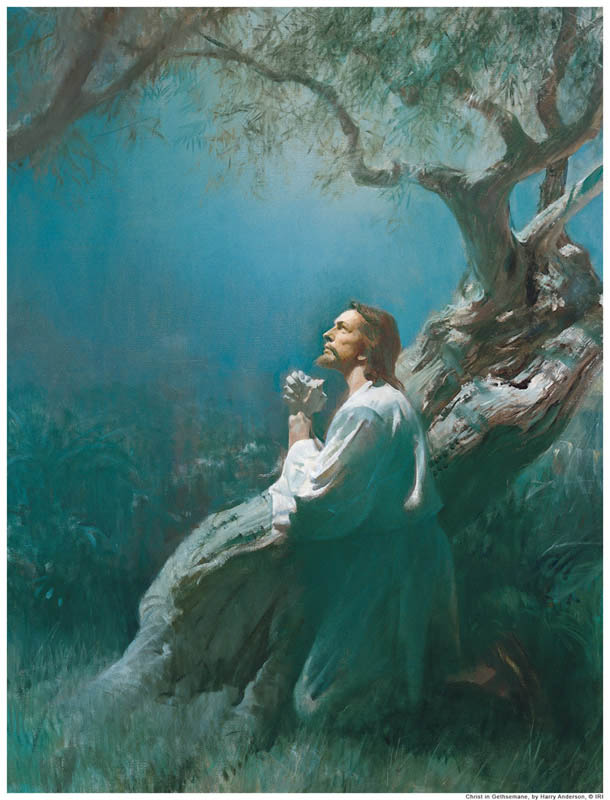Personal response by Terrie
When I was a teenager, I had a number of experiences that left me convinced I had lived before this life. Since I didn’t belong to a church yet, I started searching for an explanation for these experiences, which often involved meeting people I’d never before known and yet “remembering” them, or hearing an entirely new idea and yet knowing I’d heard it before somehow. Brand new ideas would come to my mind and yet seem entirely familiar.
As I searched, it seemed as though reincarnation was the only explanation anyone could offer for this, but in my heart, I knew this wasn’t the right answer. Something didn’t fit. But if that wasn’t the answer, what was?
 When I was sixteen, I began investigating The Church of Jesus Christ of Latter-day Saints. Their members are often nicknamed Mormons (although it is incorrect to call the church itself the Mormon Church.) From them, I learned there was indeed an explanation for this feeling that I had lived before.
When I was sixteen, I began investigating The Church of Jesus Christ of Latter-day Saints. Their members are often nicknamed Mormons (although it is incorrect to call the church itself the Mormon Church.) From them, I learned there was indeed an explanation for this feeling that I had lived before.
Mormon beliefs center around a plan of salvation. This plan has at its heart the atonement of Jesus Christ. While reincarnation had no room for Jesus in its description, and no correlation to Bible teachings, this plan taught by Mormons was Biblical in nature and included Jesus Christ. It felt right to me.
The reason I sometimes heard a truth and recognized it as feeling familiar to me, even though it was new, was that I had indeed lived before, not as another person, but as myself. This life before life occurred with God, in what Mormons call a premortal existence.
Mormons believe God created our spirits and allowed us to live with Him for a time before coming to earth. We don’t know how long we lived there or even much about that time, but we know it was a time to learn about God and His truths, to shape our personalities and values, and to make some choices about our future lives.
The Bible reveals that we had life before life:
Before I formed thee in the belly I knew thee; and before thou camest forth out of the womb I sanctified thee, and I ordained thee a prophet unto the nations (Jeremiah 1:5).
This verse tells us that God knew Jeremiah so well that He knew he would be worthy to be a prophet. He knew this because when we lived with God, we spent time with Him. He got to know us and we got to know Him. Jeremiah appears to have been so exceptionally valiant in his premortal life that God knew that even when Jeremiah lost the memory of this special time, he would still be the man he had been before he was born.
“The spirit shall return unto God who gave it” (Eccl. 12:7).
The Bible tells us we once lived with God and promises we will someday be able to return to Him. We can also see from this verse in Ecclesiastes that we lived there as spirits. This means we did not have a body, even though in other ways we were ourselves.
We were allowed to have agency there, which means the right to make choices for ourselves and our futures. When God gathered us together to tell us He was creating an earth for us to live on, we were so excited we shouted for joy.
4 Where wast thou when I laid the foundations of the earth? declare, if thou hast understanding.
5 Who hath laid the measures thereof, if thou knowest? or who hath stretched the line upon it?
6 Whereupon are the foundations thereof fastened? or who laid the corner stone thereof;
7 When the morning stars sang together, and all the sons of God shouted for joy? (Job 38)
Job was asked this by God, who didn’t take time to answer the question, because Job knew where he had been before he was born. He was one of the sons of God who shouted for joy, just as we all are.
Most of us understood God’s plan for mortality. He planned for us to receive a body and a family, to have experiences and trials that would help us reach our full potential, and to find and choose God.
There were risks, of course, as there always are when we’re trying to stretch and grow. If only justice were to be served, we would have to live a sinless life in order to return to God. However, God understood that would not be possible for mortals. He tempered justice with mercy by promising us a Savior who would come to earth voluntarily, atone for our sins, and die for us, rising from the dead to overcome the bonds of death. Jesus Christ offered to be this Savior. While grace would allow all of us to rise from the dead and to be able to repent, we would need to voluntarily activate the full measure of the atonement. This would involve accepting Jesus Christ as our Savior and agreeing to keep the commandments of God: “Not every one that saith unto me, Lord, Lord, shall enter into the kingdom of heaven; but he that doeth the will of my Father which is in heaven (Matthew 7:21).”
There were some who didn’t like the risks involved. Lucifer tried to convince everyone to refuse God’s plan and to instead choose him as their savior. He wanted, however, to do it in a way that required no suffering or sacrifice on his part. His idea was to force everyone to be obedient and to accept him as their savior, thus eliminating the risk of failure. Of course, it also eliminated the entire purpose of coming to earth. There could be no test of faith, no personal growth, under such a system.
One-third of the spirits went for what they thought was the safe route and chose to follow Lucifer. While following God’s plan was optional, the plan itself was not. If someone wanted to come to earth, it had to be on God’s terms. For this reason, Lucifer was cast out of heaven (see Isaiah 14:12) and his followers had to go with him. They lost the opportunity to come to earth and are denied the blessings of the atonement they rejected. Denied eternal happiness, they have just one goal—to make all of us as miserable as they are. This is why Satan, as Lucifer is now known, works so hard to make us fail in our mission.
The rest of us began taking our turns on Earth. Our memory of our former life has been erased, but every now and then God allows us, through the Holy Ghost, a glimpse of that life, to help us know who we once were and what we promised God we’d do.
I’ve written about our life before life here before. It’s one of my favorite parts of the gospel because it really helps emphasize how much God loves us. Before He sent us to this complicated life, He spent time with us personally, helping us prepare. It reassures me that God really does know me—not just as someone He watches from a distance, but as someone He has talked to one-on-one. He knows who I was and who I am capable of becoming. It tells me His love is personal.
This life-before-life also tells me how much Jesus Christ loves me. He also knew me personally in that past life, and when He atoned for my sins, He was doing it for someone He personally knew and loved. It holds the promise that when we leave earth, we won’t be going off to yet another earth life, but to a heavenly life. This life we’re in now is the one in which we are to prepare for eternity.
Reincarnation is not true and doesn’t mesh with the eternal plan of God. It can offer nothing as powerful as life in a premortal existence in the very presence of God. That premortal life is our promise that we really are God’s literal children and that He knows us and loves us.
About Terrie Lynn Bittner
The late Terrie Lynn Bittner—beloved wife, mother, grandmother, and friend—was the author of two homeschooling books and numerous articles, including several that appeared in Latter-day Saint magazines. She became a member of the Church at the age of 17 and began sharing her faith online in 1992.





